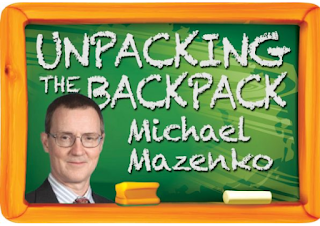Ever since the 1993 film from Harold Ramis and Bill Murray, the term "Groundhog Day" has become synonymous with mundane repetition and mindless redundancy in our daily lives and jobs. The term has become the punchline for people describing the empty and repetitive nature of their jobs or even their lives. However, the film was never really about that. Instead, the message of the movie about weatherman Phil Connor is about rebirth and the chance every day to make our seemingly boring repetitive lives whatever we truly want them to be.
Let’s face it, by February 2, New Year’s resolutions are fading, fitness centers are back to the regulars, and we’re all bogged down in the drudgery of winter. These moments are ripe for a bit of pop culture existentialism, and the quirky film from Harold Ramis and Danny Rubin puts that long cold winter, the odd little holiday, and the repetitiveness of daily life in perspective. Watching the story of a disgruntled weatherman pondering the absurdity of a weather-forecasting rodent provides a second chance at mid-winter self-reflection and re-invention. The conceit of the film is not only the ridiculous holiday but also the inexplicable weirdness of Phil Connors’ predicament.
The film Groundhog Day is actually a wonderful primer for the wisdom of existentialism, and when I taught the philosophy in my college literature class, I would often lead or conclude with a viewing of Bill Murray’s brilliant portrayal of a man trying to bring some sense of meaning to a life that seems nothing short of absurd. Clearly, the idea of living the same day over and over again in an unfulfilling, mundane place and repeating the seemingly mindless tasks of a pointless job is portrayed as a curse and a cruel joke. That realization is actually at the heart of existentialism. Life makes no sense, and the absurdity of it all can lead us to feel our entire existence is meaningless. In the movie Phil spends many years in that disgruntled fashion, viewing his life as a cruel joke. However, the movie shifts when Phil considers his situation as an opportunity to get it right.
Granted, Phil’s initial reaction to his epiphany of a life without consequences is to indulge his most base fantasies. It’s understandable — who wouldn’t at least consider that? He seizes the opportunity, drinking to excess, smoking indiscriminately, gulping coffee and pastries, manipulating women, and even robbing an armored car. Of course, the freedom and control he ultimately achieves is freedom from and power over those primal and materialistic urges. Even hedonism and debauchery apparently becomes boring after a while. A pivotal moment finds Phil sitting quietly in the cafe reading, when he notices a piano playing in the background. Rather than simply enjoy the music, he seeks out a teacher and begins learning piano, offering his piano teacher “a thousand dollars if we could get started today.” He also masters other art forms like ice sculpting, but most importantly he learns deeply the details, hopes, and dreams of the people in his life.
Groundhog Day is a film with a message — each of us will wake up again and again to the same existence that at times seems pointless. The only point is that you have the rest of your life to make it exactly what you want it to be. Bringing meaning to our daily lives was a focus of the numerous American writers like Henry Wadsworth Longfellow, whose poem “A Psalm of Life” advised us that “neither joy, and not sorrow is our destined end or way, but to act that each tomorrow find us further than today.” The point is progress; the goal is getting better. What F. Scott Fitzgerald called Gatsby’s “Platonic conception of himself” was simply the eternal quest for the ideal, for striving to become our own best selves. Life is an endlessly repeating opportunity to improve. In Bill Murray’s role as Phil Connor, we can find a second chance at New Year’s resolutions and an opportunity to, in the words of Henry David Thoreau, “live the life you have imagined.”
Thus, rather than a sad story about emptiness, the film and the day are a great chance to re-think and embrace the rich potential of our lives every day we live. Think about it. And perhaps even consider watching Groundhog Day to brighten and warm up the dark days of winter.







